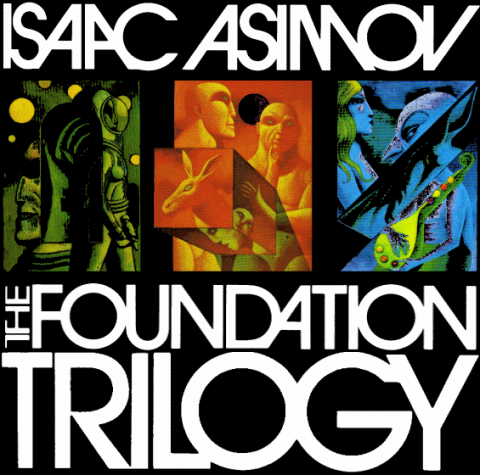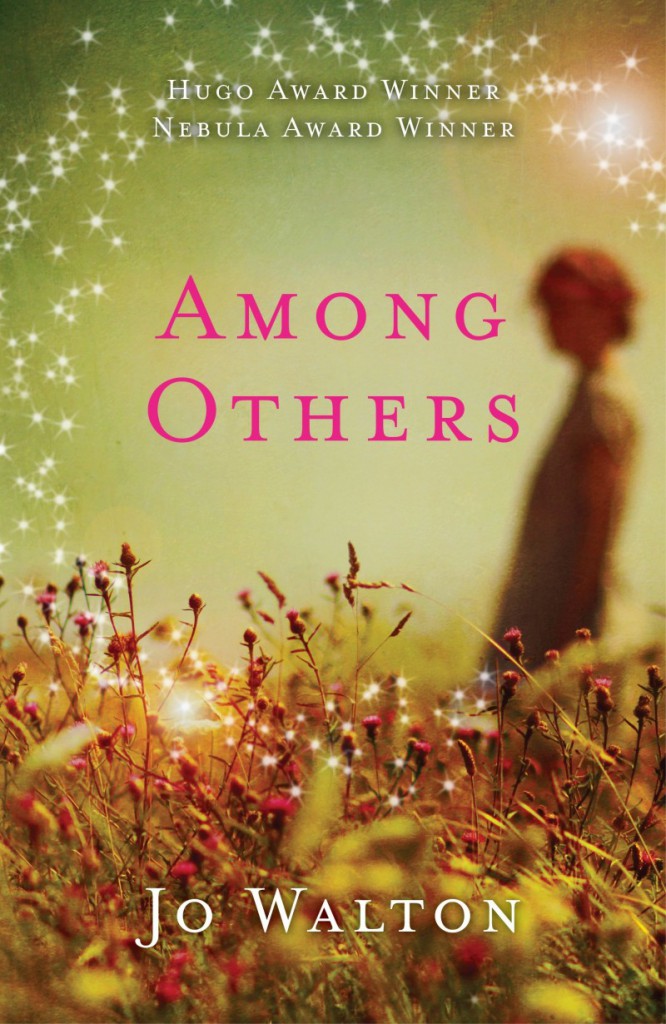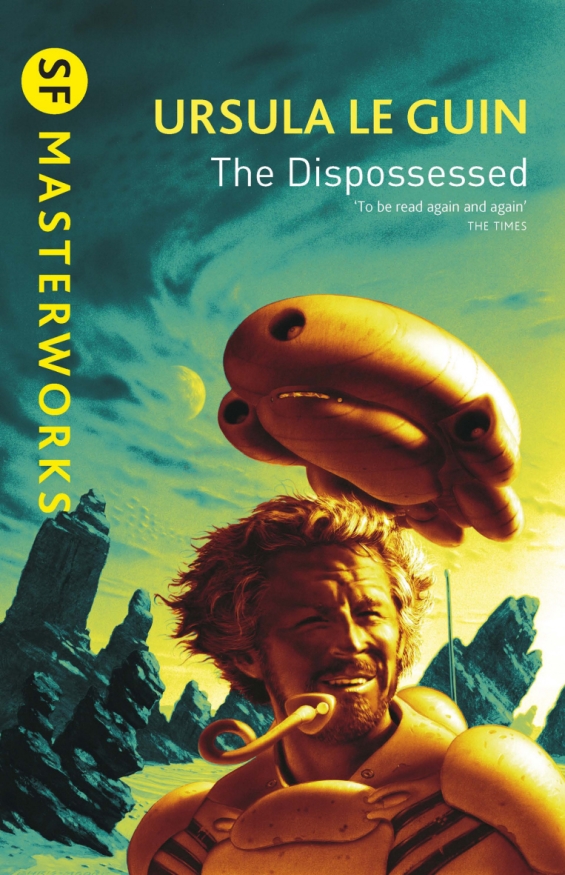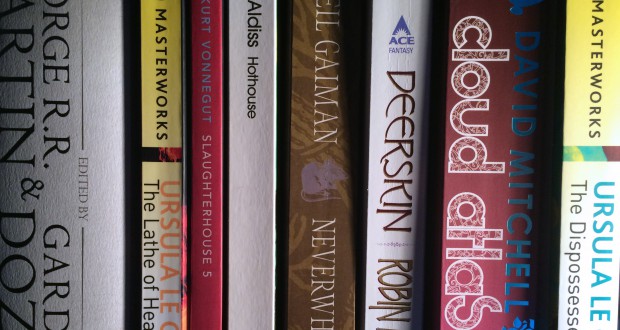Urusla Le Guin’s speech at the National Book Awards last year reminded me of the long-standing snobbery when it comes to genre fiction, especially SFF (if you haven’t seen her speech, you can watch it here). When I first started seriously working on my ‘I want to be a writer’ goal, people would inevitably ask what kind of books I wanted to write. I would say ‘Literary Fiction’ – it was vague enough to mean whatever I wanted it to (honestly, how can they call it a genre?!) while holding a level of gravitas. Internally, however, I would struggle against SFF novel ideas that came to me as I didn’t want to be ‘known’ as an SFF writer – in other words, I didn’t want to be looked down on by the literary community. (Yes, I realize this was getting ahead of myself… try writing a book and getting published before you worry about what you will or won’t be ‘known’ for.)
 Eventually, I got over it. Thankfully, there seems to be a general trend in the reading community towards a greater appreciation for SFF. No longer is it a genre that is scoffed at and considered not real literature. And honestly, why was it ever? Think back to some of the classic novels we have praised and studied for years – Dracula, Around the World in Eighty Days, The Time Machine, Frankenstein, etc – they belong in the SFF genre and we hold them up as great pieces of literature like any other.
Eventually, I got over it. Thankfully, there seems to be a general trend in the reading community towards a greater appreciation for SFF. No longer is it a genre that is scoffed at and considered not real literature. And honestly, why was it ever? Think back to some of the classic novels we have praised and studied for years – Dracula, Around the World in Eighty Days, The Time Machine, Frankenstein, etc – they belong in the SFF genre and we hold them up as great pieces of literature like any other.
If you ask Google to define ‘literature’ for you, it tells you that literature is ‘written works, especially those considered of superior or lasting artistic merit.’ Science fiction and fantasy works, if well written, are just as deserving of a place amongst the highly regarded literature of any age. So why are they still so often left off the list? Why do people hesitate to explore these genres with a socially imbued negative attitude before even giving them a chance?
 In many ways, SFF works are more liberating for both writers and readers. They can look beyond what is in order to discover what could be – and as Le Guin points out, this does not have to mean a pessimistic view of the future. Written works of fiction allow authors to explore ideas, stories, and potential. Without a limit on imagination like keeping everything in the realms of our ‘real world’ (as it is now) and what is currently possible, means that writers (and readers) can explore unlimited possibilities. Science fiction and fantasy are speculative fiction genres – and genres do not define the quality of the writing.
In many ways, SFF works are more liberating for both writers and readers. They can look beyond what is in order to discover what could be – and as Le Guin points out, this does not have to mean a pessimistic view of the future. Written works of fiction allow authors to explore ideas, stories, and potential. Without a limit on imagination like keeping everything in the realms of our ‘real world’ (as it is now) and what is currently possible, means that writers (and readers) can explore unlimited possibilities. Science fiction and fantasy are speculative fiction genres – and genres do not define the quality of the writing.
It’s about time that SFF found its way into mainstream reading circles (and TV like Game of Thrones is helping). Maybe one day it will be just as likely to have SFF novels win all the standard book awards as well as the genre-specific ones. But for those of you who are having trouble seeing the intrinsic merits of SFF books, look at the following list as my argument for SFF books to be considered on par with more traditionally literary texts.
Outside the box thinking
 The nature of SFF works mean that there are no limits on the imagination. Writers are not limited by the physical or mental abilities of humans, technological or scientifically supported theories, or even genre conventions that have gone before. They are free to think of and create anything and everything. This can potentially mean some completely original and thought provoking story telling as well as providing unique angles through which to view the world.
The nature of SFF works mean that there are no limits on the imagination. Writers are not limited by the physical or mental abilities of humans, technological or scientifically supported theories, or even genre conventions that have gone before. They are free to think of and create anything and everything. This can potentially mean some completely original and thought provoking story telling as well as providing unique angles through which to view the world.
Controversy
SFF provides writers with the potential to explore delicate, controversial subjects and ideas in a less-offensive manner. The prime example of this is Star Trek. The original series aired during a time when censorship was at its height in America. While other shows were not allowed to so aggressively deal with issues such as race, Star Trek had a get out of jail free card – it wasn’t real. Being set in the far future and talking about an alien race as a metaphor for race, well that was entirely different thing! They managed to get away with a great deal of social commentary that might have otherwise been considered extremely offensive or questionable. If an SFF attack a fictional religious figure that is a metaphor for Islam, for instance, they might avoid the attacks that befell Charlie Hebdo.
Shattering stereotypes and social norms
 Within the bounds of realism, it can be difficult for authors to step away from the stereotypes and social norms embedded within society. For instance, there are plenty of feminist texts, but they are always read with real-life context. SFF can exist outside of these. Think, for instance, of Le Guin’s classic The Left Hand of Darkness. This calls into question a great deal of gender stereotypes, ones to which our social hang-ups can’t be applied to as it is part of an alien culture. Meanwhile, on the fantasy side of things, you have things like Buffy the Vampire Slayer making a tiny blonde girl the most physically powerful of the bunch.
Within the bounds of realism, it can be difficult for authors to step away from the stereotypes and social norms embedded within society. For instance, there are plenty of feminist texts, but they are always read with real-life context. SFF can exist outside of these. Think, for instance, of Le Guin’s classic The Left Hand of Darkness. This calls into question a great deal of gender stereotypes, ones to which our social hang-ups can’t be applied to as it is part of an alien culture. Meanwhile, on the fantasy side of things, you have things like Buffy the Vampire Slayer making a tiny blonde girl the most physically powerful of the bunch.
Realism is the trump card
No matter how far-fetched, fantastical, or weird, SFF is always grounded in reality. No matter how original or fantastical a story might be, there is always something about it that can be linked back to reality as we know it. Take some of the Mieville new weird stuff, the creatures and societies he creates are so very out there in relation to the world we know, and yet there’s always something that allows the reader to hook their understanding on – libraries, lovers, police, crime syndicates, government, and so on. In order to create an SFF world, a writer must have a firm grip on reality, allowing them to overlay their imaginative creation over what an audience might understand and empathize with.
Beautiful writing is beautiful no matter what genre the story fits into. Truly excellent literature is well written, engaging with its plot and characters, and says something about this world. Well, all of those elements are potential possibilities for SFF works. So please don’t dismiss a book simply on its genre, give it a go. It might surprise you.
 Pop Verse Pop Culture Universe
Pop Verse Pop Culture Universe







One comment
Pingback: R is for robot – Ryan Biddle – cartoonist/illustrator